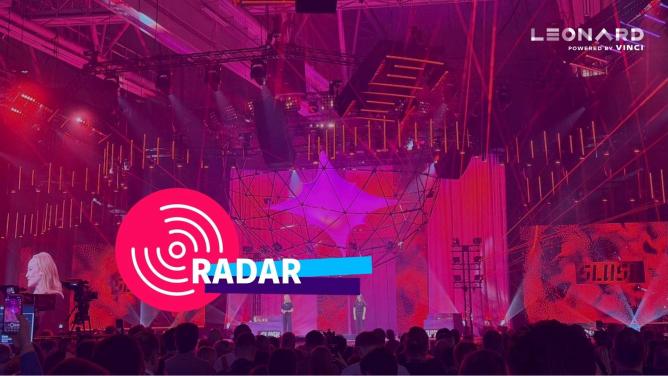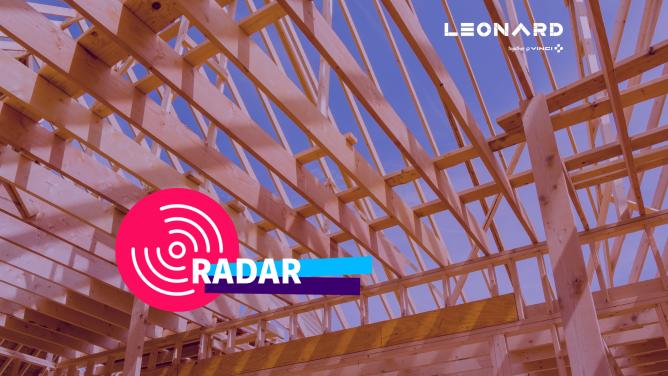The three biggest trends from Slush 2024
Every year since 2008, Helsinki transforms into the capital of innovation and tech with Slush, a two-day event that welcomes 13,000 attendees, including 5,500 startup founders and 3,300 investors. The team at Leonard took the opportunity to scope out the latest standout trends in the world of construction and infrastructure.
Direct carbon capture at the source or from the atmosphere attracting investors
From the Swiss-based Qaptis which captures CO2 directly from heavy-duty vehicles, to Twelve in California which raised $645 million last September to capture carbon in the atmosphere and transform it into aviation fuel and other essential products, carbon capture has captured the imagination of an increasing number of entrepreneurs and, in particularly, investors from around the world.
The concept? Capture CO2, either directly at the source of emissions or from the atmosphere, and turn it into useful products rather than leaving it to directly contribute to global heating. This action is called CCU (Carbon Capture and Utilization).
In the case of Twelve, the California-based company uses an electrochemical process that mimics photosynthesis to transform CO2 into complex molecules. These molecules are then used to make sustainable aviation fuel (SAF) as well as chemicals usually derived from petroleum.
The startup has already collaborated with some major names, such as Microsoft, Procter & Gamble and the US Air Force, which helps explains the eyewatering amount of funding raised – consisting of $400 million for project equity, €200 million in Series C financing and €45 million in credit facilities – led by the “impact” fund TPG Rise Climate. These funds will enable the startup to accelerate the rollout of its technology and build its first production plant for commercialization.
Low-carbon re-industrialization is taking shape
Like the air transportation industry, the heavy industry – and in particular steel production – is making progress in its transition towards carbon neutrality. Just take the Swedish startup Stegra (formerly H2 Green Steel), which has secured no less than $6.5 billion in funding in the space of a few years. It is currently building a “green” steel production mill in Boden, Sweden. Construction of the facility began in 2023 and is scheduled to go into production in 2026.
Its aim? To produce 2.5 million tons of steel annually, with this figure planned to increase to 5 million tons by 2030, all the while significantly reducing CO2 emissions (up to -95% compared to traditional blast furnaces), by using hydrogen as an alternative to traditional coal.
Stegra has just announced a major collaboration with two new strategic partners – infrastructure investor John Laing and water treatment services provider Aquatech. The funding round featured a wide variety of contributors, ranging from venture capital investment funds to infrastructure funds, accustomed to investing in long-term projects, but traditionally less risk-averse than VCs. Could this be a good sign for the entire greentech/cleantech industry?
Defense tech emerges as the geopolitical context deteriorates
After two days at Slush, another thing is clear: defense tech is coming to the forefront. Despite the taboo surrounding the topic two years ago, more and more players are currently making their mark, especially in Finland. This is notably the case of Helsinki-based startup ICEYE. While initially positioning itself in space tech, it has since adapted its synthetic aperture radar (SAR) technology for military purposes, particularly to help Ukraine in its defense efforts.
With more than 700 employees spread across Finland, Poland, Spain, the UK and the US, ICEYE now operates the largest constellation of SAR satellites in the world. Its technology can be used to capture high-resolution images of the Earth in daylight, at night, and even through cloud cover, thus providing continuous surveillance of a given area.
The emergence of defense tech has seen unprecedented political and financial support. In July 2024, the European Investment Fund (EIF) and the NATO Innovation Fund (NIF) signed a memorandum of understanding to encourage private investment in European defense and security. This alliance is backed by twenty-four NATO countries and invests more than €1 billion in advanced defense technology, which is plenty to start accelerating the development of startups in the sector.
Image credit : Vladislav Zolotov, Getty Images


